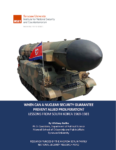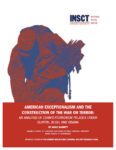In 2010, the Maxwell School of Citizenship and Public Affairs received an endowment gift to fund faculty and graduate student research relating to issues of national security.
The Andrew Berlin Family National Security Research Fund, established in honor of Professor David H. Bennett, operates through Syracuse University Institute for Security Policy and Law, a collaboration between the Maxwell School and Syracuse University’s College of Law.
2020 Projects
Financial Sanctions & Political Risk in the International Currency System
By Professor Daniel McDowell (published in Review of International Political Economy, March 2020)
Scholarship on international currencies has traditionally emphasized how an issuing state’s foreign policy can enhance the attractiveness of its currency for cross-border use. Yet, foreign policy actions need not only boost a currency’s international appeal—they may also undermine it.
This study introduces a general theory of how US foreign policy can influence governments’ policy orientations toward the dollar in positive or negative ways. Policies like financial sanctions generate ‘political risk’ that weaken the dollar’s attractiveness for international use. The study tests the claim that the United States’ use of financial sanctions incentivizes targeted governments to implement de-dollarization policies … MORE
Comparing American Perceptions of Post-Civil War Ku Klux Klan & Transnational Violence
By Michael Newell (published in Security Dialogues, January 2020)
Recently, public debates have questioned whether or not the American government responds differently to terrorism by white, right-wing, Americans. This article examines a historical period in which similar dynamics were on display in state responses to the Reconstruction-era Ku Klux Klan (KKK), Irish-American Fenians, and anarchists from 1860 to 1920 … MORE
2019 Projects
Ph.D. Scholars Workshop | Sept. 26, 2019
- Angely Martinez
Northern Cyprus: A Case of Missed Reintegration
Interviews in Nicosia, Cyprus - Kyungwon Suh
Does Nuclear Superiority Strengthen the Credibility of Extended Nuclear Deterrence? Evidence from the Cold War Superpower Alliances
Junior Scholar Symposium at 77th Annual MPSA Conference, Chicago, IL - Giles David Arceneaux
Beyond the Rubicon: Command and Control in Regional Nuclear Powers
Interviews in New Delhi, India, and at the Naval Postgraduate School in Monterey, CA - Katharine Russell
Femme Fatale: Exploring the Use of Women in Terrorist Organizations
Interviews and Archival Research in Belfast, Northern Ireland - Aykut Öztürk
Exploring the Origins of Mass Support for Autocratization: Turkey and Beyond
Electronic Survey Data on Turkish Public Opinion
The Institute for National Security and Counterterrorism gratefully acknowledges the support that also was given this year to the following scholars:
- Elise Roberts
Aiding War or Developing Peace? International Aid and the Breakdown of Post-Conflict Peace Interviews in Sierra Leone and Côte d’Ivoire - Jason Blessing
Securing Cyberspace: The Role of the Military in National Cyber Strategies Interviews in Tallinn, Estonia - Lamis Abdelaaty, Assistant Professor, Political Science
The Refugee Crisis Dataset Construction of an Original Dataset on Historical Refugee Crises Around the World, from 1951-2015 - Mehrzad Boroujerdi, Professor, Political Science
Archival Research on Iranian Paramilitary Organization Mansurron, Responsible for the 1978 Assassination of his Father, Malek Boroujerdi
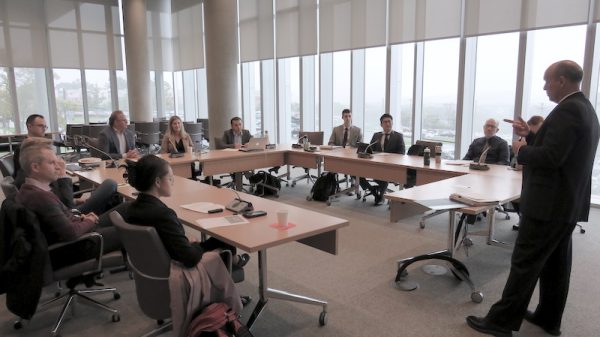
Civil-Military Instability and Nuclear Platform Diversification
By G. David Arceneaux
Paper presented at the the 115th American Political Science Association’s Annual Meeting & Exhibition, Aug. 29-Sept. 1, 2019, Washington, DC.
Why do some nuclear states develop large arsenals with diversified delivery platforms, while others maintain limited numbers and types of nuclear systems? Although the operational dimensions of nuclear arsenals shape the strategic behavior and interactions of nuclear states, scholars have largely overlooked these outcomes in favor of explaining the causes of nuclear proliferation. Nuclear statehood is not simply a binary category, however, and researchers are yet to explain puzzling patterns in the nuclear force structure of states after they acquire nuclear weapons.
Arceneaux addresses this shortcoming in the literature on nuclear proliferation by providing a theory of nuclear platform diversification. He argues that, in states with unstable civil-military relations, political elites pursue a substitution strategy that increases the state’s reliance on nuclear forces at the expense of conventional military capabilities.
The Adoption of Nuclear Arsenal Innovations
By Kyungwon Suh & G. David Arceneaux
Paper presented at the the 115th American Political Science Association’s Annual Meeting & Exhibition, Aug. 29-Sept. 1, 2019, Washington, DC.
Why do some regional nuclear powers rapidly adopt innovative nuclear platforms, while others slowly incorporate or completely forego such capabilities? Nuclear platforms such as submarine-launched ballistic missiles, tactical nuclear weapons, and multiple independently targetable reentry vehicles (MIRVs) significantly augment a state’s deterrent capacity, but states have adopted these capabilities at widely different rates.
This project contributes to the growing literature on the post-proliferation behavior of regional nuclear powers by demonstrating the opportunities and constraints facing contemporary proliferators. The project also advances the debate on the determinants of nuclear force posture by emphasizing the acquisition of qualitatively different innovations, rather than highly aggregated indicators of nuclear platform diversification.
Conceptualizing & Measuring Refugee Crises
By Lamis Abdelaaty, Assistant Professor, Maxwell School
Paper presented at the the 115th American Political Science Association’s Annual Meeting & Exhibition, Aug. 29-Sept. 1, 2019, Washington, DC.
Although the 2015 surge in Mediterranean arrivals to Europe seemed to trigger new interest in refugee movements, the field of refugee studies is in fact more than 50 years old. Still, notwithstanding the dramatic increase in academic work on refugees over the past few decades and despite its obvious potential value, there remains no comprehensive listing of refugee crises.
This paper conceptualizes and measures refugee crises worldwide during 1951-2015. It introduces an original dataset that fills a gap in the data available to scholars of international relations and refugee studies. This dataset will enable scholars to add multiple insights to the literature on the politics of migration and asylum. It promises to advance our understanding of important policy-relevant questions related to the causes and consequences of refugee crises.
2018 Projects
When Can a Nuclear Security Guarantee Prevent Allied Proliferation?
By Whitney Baillie, Ph.D. Candidate, Maxwell School
The purpose of this study was to draw some preliminary conclusions about the factors that influence the credibility of U.S. nuclear security guarantees and consequently their effectiveness as a nonproliferation tool. It is not just a matter of whether nuclear security guarantees prevent U.S. allies from proliferating. Rather, I investigated the policy choices surrounding these guarantees that affect U.S. allies’ perceptions of the credibility of the guarantee. This is imperative because only a credible nuclear security guarantee can serve as a viable substitute for a country’s own nuclear arsenal, especially when they face a grave security threat.
The Rhetoric of White Supremacist Terror: Assessing the Attribution of Threat
By Jason Blessing and Elise Roberts, Ph.D. candidates, Maxwell School
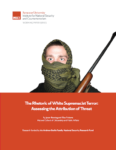
In the post-9/11 world, fears of terrorism have led to growing anti-immigration sentiments among the public and calls for stricter national security measures. While recent studies have successfully discredited the general theory that immigration increases the risk of terrorist infiltration (Bove & Bohmelt, 2016), authors have largely ignored the terrorists next door.
Domestic terrorism remains widely understudied (Simi, 2010); however, the threat is just as potent and pervasive as the danger posed by international actors. In recent decades, the greatest threat of domestic terrorism in the United States has come from right-wing extremists like White Supremacist groups (Piazza, 2015).
Despite this, White Supremacist terrorism has been largely overlooked by scholars and has generally been characterized as an infrequent phenomenon. This paper seeks to avoid these pitfalls by exploring how these terror groups portray different populations as threats to white supremacy.
2017 Projects
UN Mediation and the Women, Peace, and Security Agenda: Moving from Rhetoric to Reality
By Catriona Standfield, Ph.D. Candidate, Maxwell School
Women are present on the frontlines of conflict as combatants, peacebuilders, victims, and more. Yet, when it comes to negotiating the peace they are conspicuously absent, meaning their needs often go ignored.
Politicians at Arms: Civilian Recruitment of Soldiers for Middle East Coups
By Drew Holland Kinney, Ph.D. Candidate, Maxwell School
Why would politicians recruit soldiers for military coups d’état? The civil–military relations literature assumes politicians aspire to supremacy over the military; enabling praetorianism would risk their future rule. While civil–military relations widely recognizes the empirical fact of civilian participation in military takeovers, no study specifies or theorizes the topic.
This essay examines the conditions in which politicians recruit soldiers to seize power by investigating the understudied processes of military takeovers. Using British Foreign Office documents, Arabic language memoirs, and Polity data, I find that civilian statesmen in Iraq (1936) and Syria (1951) could not tolerate their civilian rivals’ incumbency but were unable to challenge them peacefully, so they recruited like-minded officers for coups. This suggests that while politicians do not necessarily want the army in the chambers, they sometimes favor praetorianism to the continued rule of their civilian opponents.
The Andrew Berlin Family National Security Research Fund Workshop
SU College of Law | March 31, 2017
Moderators: Professor Brian Taylor and Professor Colin Elman, Maxwell School
- The Curious Case of South Korea: Testing Competing Models of Nuclear Reversal
Whitney Baillie, Ph.D. student, Department of Political Science, Maxwell School - Civilian Coups: Militarized Parties and Politicized Militaries in Post-Colonial Iraq and Syria
Drew H. Kinney, Ph.D. student, Department of Political Science, Maxwell School - Recrafting the Peace Table? Gender and UN Mediation Discourse
Catriona Standfield, Ph.D. candidate, Department of Political Science, Maxwell School - Networks of Meaning and Domestic Right-Wing Violence: White Supremacist Responses to Immigration Reform in the US
Jason Blessing and Elise Roberts, Ph.D. students, Department of Political Science, Maxwell School
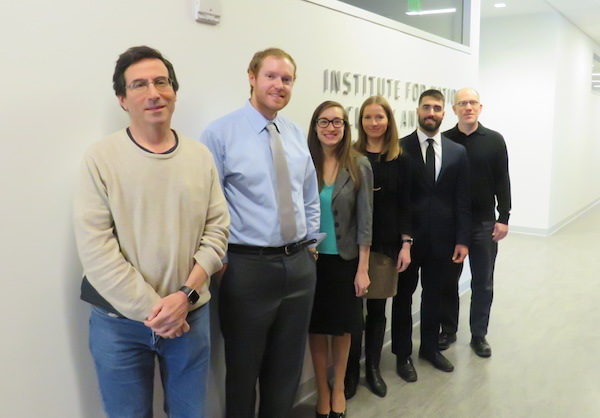
“Countering Violent Extremism: An Introduction to the Challenges, Opportunities, and Future of Counterterrorism.”
Cora True-Frost, Associate Professor, SU College of Law
On March 29, 2017, as part of the Andrew Berlin Family National Security Fund, SU Law Professor Cora True-Frost lectured on “Countering Violent Extremism: An Introduction to the Challenges, Opportunities, and Future of Counterterrorism.” True-Frost discussed the pros and cons of FBI, DHS, and other domestic CVE and “resiliency” initiatives—especially those that engage civic institutions such as schools and non-profit refugee groups—and how these efforts fit with international programs, such as UNSC Res. 2178.
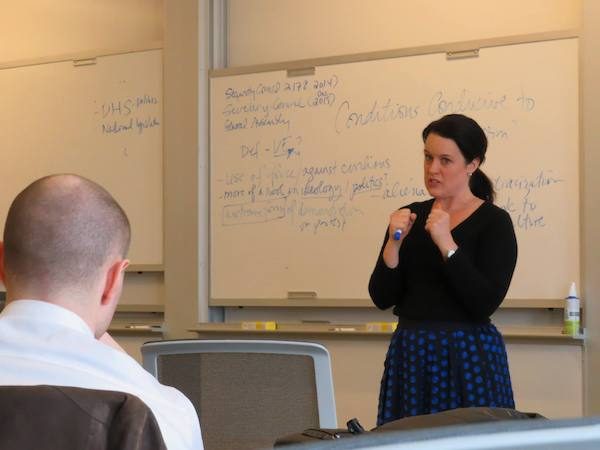
2016 Projects
American Exceptionalism & the Construction of the War on Terror: An Analysis of Counterterrorism Policies Under Clinton, Bush, & Obama
Marc Barnett, MAIR and MPP Candidate, SU Maxwell School & Hertie School of Governance, Berlin, Germany
This paper seeks to explain both the origins and the continuity of dominant counterterrorism (CT) policies that emerged under the George W. Bush Administration in response to the Sept. 11, 2001, terrorist attacks (9/11). The paper, firstly, examines the notion of American Exceptionalism as a defining political myth that affects foreign policy. Next, the post-Cold War security environment under President William J. Clinton is examined as a foundation and precursor to the Bush Administration policies. The paper then details the Bush Administration’s response both in policy and rhetoric to 9/11, a moment in which actors were less constrained due to the rising crisis.
After looking at the Bush Administration, the paper analyzes the endurance of certain CT policies under President Barack Obama and his administration. Next, the paper turns to the notion of American Exceptionalism to explain both the emergence and the endurance of the CT policies. The paper then turns to the next administration—that of Donald J. Trump—assessing the security environment and offering several recommendations. Finally, a brief conclusion is offered.
Funding allowed for archival research at the US Library of Congress.
The Origins of American Counterterrorism
Michael Newell, Ph.D. Candidate, SU Maxwell School, Syracuse University
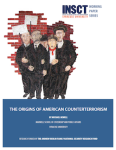
While much attention has been paid to the American state’s reaction to the Sept. 11, 2001, attacks, the origins of institutions and ideas deployed in the War on Terror in historical conceptions of terrorism and political violence have been overlooked.
I analyze these historical origins through the American state’s response to Ku Klux Klan (KKK), Irish-American Fenian, and anarchist political violence from the end of the Civil War in 1865 until the 1920 bombing of Wall Street, the last alleged significant act of anarchist violence. I argue that this history is demonstrative of a process of threat construction and changes in institutions, laws and policies.
These changes came about through a mixture of complex social and political factors, but the perception of threat significantly influenced their content and the populations they were directed against. This was particularly the case in the state’s response to European anarchists, where the response could be described as against an ‘inflated’ perception of threat, while the response to the KKK and Irish-American Fenians was more constrained.
Funding allowed for archival research in Washington, DC, specifically at the US National Archives, the New York Public Library, and the American Catholic History Research Center, in order to read correspondence about American responses to anarchism and domestic terrorism by the departments of Justice and State, the White House, and Congress.
See also: Newell, M. “The Strategy of Exclusion in American Counterterrorism.” Studies in Conflict & Terrorism (February 2018)
Consent & Conquest: How the Western Way of Warfare Spread to the Indo-Pacific
Evan A. Laksmana, Ph.D. Candidate, Maxwell School of Citizenship and Public Affairs
My dissertation examines the spread of Western war fighting systems to the Indo-Pacific. Despite the growing interest among scholars and policymakers in Asian security affairs, few studies account for the variation in how different states effectively adopt and emulate Western military systems—and whether that variation affects their combat effectiveness.
The project argues that the different types of transmission pathways through which military systems travel from one state to another—whether it is coercive, cooperative, or commercial—plays a critical role in shaping the process of organizational emulation.
Funding enabled the purchase of research materials, including statistical software (Stata), and archival research at MIT’s Center for International Studies and Harvard University’s Yenching Library (Boston, MA) and the US Library of Congress and National Defense University (Washington, DC).
2015 Projects
The Historical Origins of Terror, Threat, & the Constitution of Security Practices
Michael Newell, Ph.D. Candidate, Maxwell School of Citizenship and Public Affairs, Syracuse University
Where do contemporary responses to terrorism come from? Mike Newell explores the history and relationship between the political meaning of “terrorism” and the choice of particular counterterrorism responses. He intends to use his analysis as a lens through which to view modern counterterrorism practices and to argue that the global “post-9/11” world is not necessarily distinct from any other historical periods.
Funding facilitated travel to national archives in Richmond, Surrey, UK.
2014 Projects
Social Technologies in Emergency Management
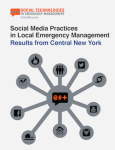
ISPL (Keli Perrin) and the Moynihan Institute, Maxwell School (Ines Mergel, Randall Griffin)
SoTechEM examines the use of social media by emergency management and response organizations; collects and analyze data on their uses in order to identify best practices; and offers training to EM organizations on lessons learned.
Funding facilitated research and a training session for local EM practitioners.
[su_spacer]
Explaining Nuclear Behavior
David Arceneaux, Ph.D. Candidate, Maxwell School of Citizenship and Public Affairs, Syracuse University
Arceneaux’s research fills a gap in political science nuclear studies scholarship, which often examines how and why states pursue and achieve nuclear weapons but not how they behave once they acquire them. Specifically, Arceneaux is interested in how new nuclear states posture in an effort to achieve deterrence, coercion, or other perceived nuclear benefits.
Funding facilitated visits to archives at Texas A&M University and George Washington University and research panels at Texas A&M and Syracuse University.
2013 Projects
Unsettling: Displacement During Civil Wars
Abbey Steele, Ph.D., Assistant Professor of Public Administration and International Affairs, Maxwell School of Citizenship and Public Affairs
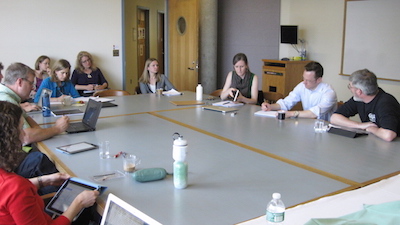
Forty million people have fled their homes during contemporary wars. Yet in spite of its scale, displacement is poorly understood. Abbey Steele’s research argues that displacement depends on the form of violence, not the level, and shows how armed groups employ different forms depending on their goals and constraints.

